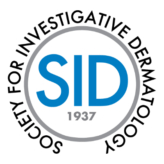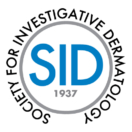SID TYPE 2 INFLAMMATION INNOVATION AWARDS
In furtherance of their long-term commitment to skin research and the development of novel treatments for patients with serious skin diseases, Sanofi and Regeneron Pharmaceuticals have provided the funds for the Society for Investigative Dermatology (SID) to award grants to researchers conducting groundbreaking, innovative studies in Type 2 Inflammation.
Applications are now open for the second year of SID Type 2 Inflammation Innovation Grants. Up to four recipients will be awarded a $125,000 grant each, with up to two awards per year.
Interested, eligible applicants should apply online at https://www.surveymonkey.com/r/XPQHRY3 by August 31, 2023. Awards will be announced in Fall 2023.
OVERVIEW AND ELIGIBILITY CRITERIA
DESCRIPTION: SID type 2 Inflammation Innovation Awards are intended to support cutting-edge, innovative research projects being conducted in the U.S. by junior investigators. Research must pertain to Type 2 Immunity or diseases characterized by Type 2 Inflammation including but not limited to: Atopic Dermatitis (or eczema), Chronic Urticaria, Allergic Contact Dermatitis, Prurigo Nodularis, Keloids, Systemic Scleroderma, Localized Scleroderma (or morphea), Hand and Foot Dermatitis, Bullous Pemphigoid and Alopecia Areata. Applications will be evaluated by an independent review committee.
AWARDS: There will be up to four awards of $125,000 each, with up to two awards per year.
ELIGIBILITY: Public or private institutions throughout the US such as universities, colleges, hospitals, laboratories, and non-profit organizations are eligible.
EARLY STAGE INVESTIGATOR: An ESI, or Early Stage Investigator, is a New Investigator who has completed his/her/their terminal research degree or medical residency—whichever date is later—within the past 10 years and has not yet been awarded a substantial, competing NIH or similar research grant.
or
YOUNG INVESTIGATOR: An active scientist within skin-related research, able to demonstrate scientific merits in the form of at least 5 peer-reviewed first author or co-first author publications within skin-related research.
REQUIRED: Awardees must be based in the US.
Only applications in the field of dermatology or cutaneous biology will be eligible for this award.
CRITERIA: The awards are intended to enable innovative projects of exceptional merit and transformative potential within the scope of Type 2 Inflammation. The mechanism is designed to support high-risk/high-reward proposals that embody challenge, innovation, and impact.
Research must be focused on new discoveries in the basic or clinical sciences, and should have current or potential impact on the understanding and treatment of Type 2 inflammatory skin diseases.
REQUIRED APPLICATION MATERIALS
COVER LETTER: Provide a cover letter summarizing your project, and its relevance to advancing the research horizon for Type 2 Inflammation.
SCIENTIFIC ABSTRACT: Summarize the proposed research for a scientific audience. Abstract must not exceed 2100 characters, including spaces.
SPECIFIC AIMS: Please succinctly state the goals of this one-year proposal. Because this funding is intended to initiate projects that would potentially qualify for additional future funding, please differentiate between the immediate aims of this project and related aims that would follow in year two or three. What do you intend to accomplish? What hypothesis is to be tested? Include one or two sentences about how this proposal will improve our understanding of Type 2 Inflammation. Specific aims must not exceed 1000 characters, including spaces. Maximum of three aims may be submitted.
RESEARCH PROPOSAL: Describe your proposal in sufficient detail for adequate evaluation by an independent committee of scientific peer-reviewers. Make every effort to be succinct and use figures or tables to summarize your data. Research proposals include the following five sections, and must not exceed four pages:
Background and significance: Why is the research important? Evaluate existing knowledge in the field and specifically identify the possible contributions that your investigation may make.
Preliminary data/studies: Use this opportunity to describe published or unpublished data that support your hypothesis, specific aims, and/or experimental design.
Experimental plan: Describe the experimental design, the procedures to be used, and the manner in which the data will be analyzed. Descriptions of established lab procedures are not necessary.
References: List of references cited (not counted towards page limit). Uploaded in a separate ‘References and Supporting Attachments’ dropdown.
Supporting Figures and Tables: Please upload any supporting figures and tables (not counted towards page limit) using the “References and Supporting Attachments” button.
Research Proposal Format:
- 4-page maximum, excluding figures, tables, and references
- Minimum of 12-point font size
- Minimum of 1-inch margins
- Figures must be legible
- Up to two additional copies of original figures may be appended if required for clarity.
BUDGET PERIOD DETAIL: Provide a detailed budget based on NIH budget categories. Each grant is limited to $125,000 for one year. Indirect costs are not allowed. List all personnel to be included in the project and their anticipated support. Include a concise statement of how you propose to allocate funds (amount and for what purpose).
BIOGRAPHICAL SKETCH: Use the NIH format to provide a biographical sketch. Each biographical sketch must not exceed 5 pages.
OPTIONAL ADDITIONAL ATTACHMENTS
References and Supporting Attachments: References cited in Research Proposal and/or any Supporting Figures/Tables.
REVIEW PROCESS
REVIEW: The SID will convene an independent grant review committee to identify the awardees.

Funding for the SID Type 2 Inflammation Innovation Awards has been provided by Sanofi and Regeneron Pharmaceuticals.

